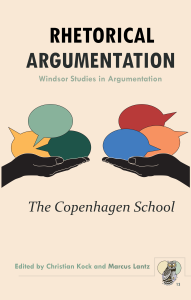Rhetorical Argumentation: The Copenhagen School
Synopsis
Aristotle taught us that rhetoric is centered around deliberation, and he emphasized that we may only deliberate about things that we can in fact undertake (Rhetoric, 1357a, and elsewhere, mainly in the ethical works). Rhetorical argumentation is, in its essence, the bedrock of such deliberation: It provides the reasons for and against various choices, which we exchange when, in some human collective, we are to decide on a course of action. To be sure, not all rhetoric is argumentation. But all deliberative discourse uses rhetoric, and in such discourse rhetorical argumentation is central (and should be, we might add). Hence, we have found it in place to present a collection of work that revolves around the conception of rhetorical argumentation just outlined and asserts the centrality of that notion in any theory of argumentation.
Chapters
-
Introduction
-
Debate for Better or Worse: Hostility in Public Debate
-
The Difference between the Rhetorical and the Philosophical Concepts of Argumentation
-
For Deliberative Disagreement: Its Venues, Varieties and Values
-
In Search of the Productive Place(s) of Rhetoric: Outlining a Rhetorical-topical Argument Model for Argument Invention
-
The Danish Debate About Prostitution: Some Characteristics
-
The Roar in the Comment Section: How Journalists Mediate Public Opinion on the Danish Online Newspaper politiken.dk
-
Affecting Argumentative Action: The Temporality of Decisive Emotion
-
Persuasive Figures: Harnessing Stasis Theory for Rhetorical Criticism
-
The Second Persona in Political Commentary
-
Arguing Against Argumentation in Science: Paul Feyerabend's Polemical Scholarship in "Against Method" and its Lasting Queer
-
Sniff the Air and Settle In: Bullshit, Rhetorical Listening, and the Copenhagen School's Approach to Despicable Nonsense
-
Paper Tigers in the Clinic? Rhetorical Argument Fields in Health Policy Implementation
-
Muzzling Science? Cultivating Scientists' Rhetorical Awareness in the Public Communication of Expertise for an Era of Pandemic Fatigue

Published
Categories
License

This work is licensed under a Creative Commons Attribution-NonCommercial-NoDerivatives 4.0 International License.


